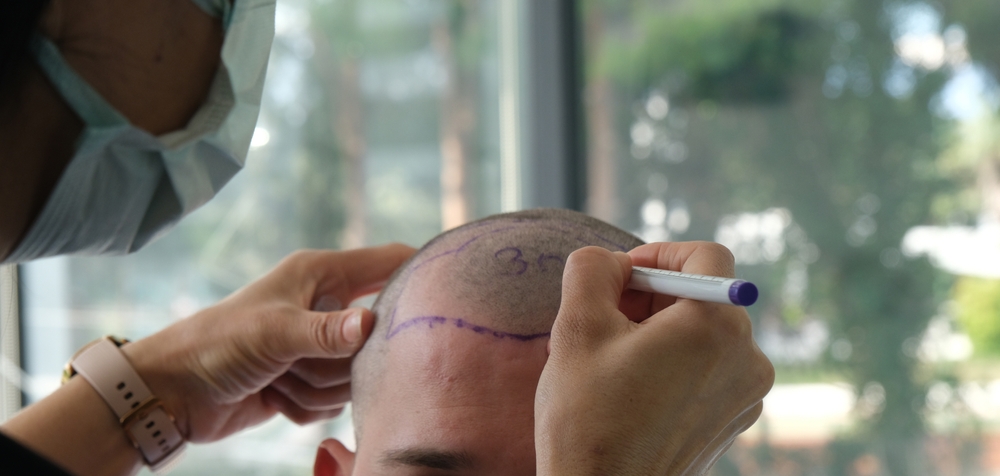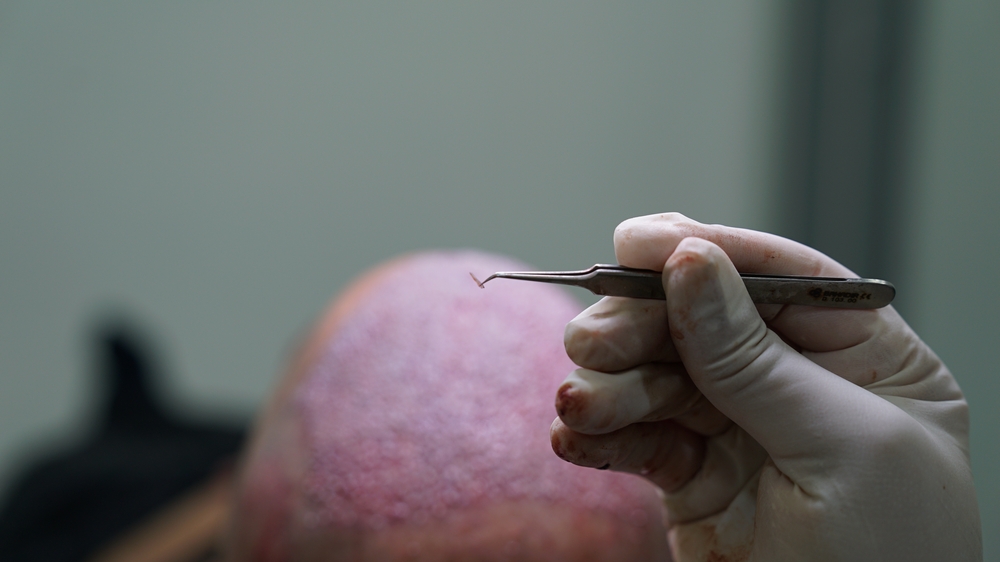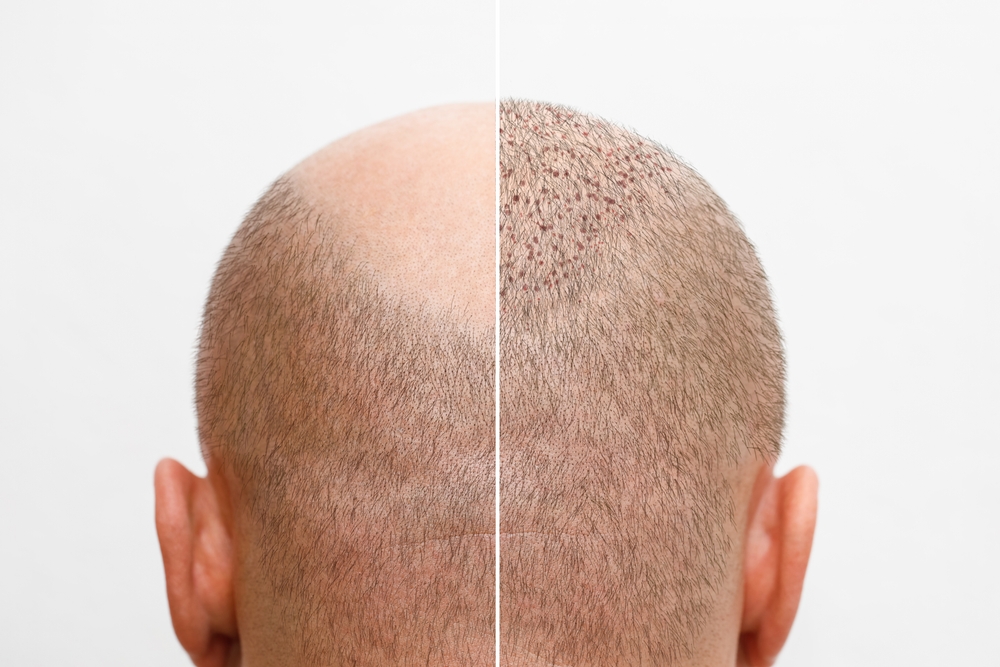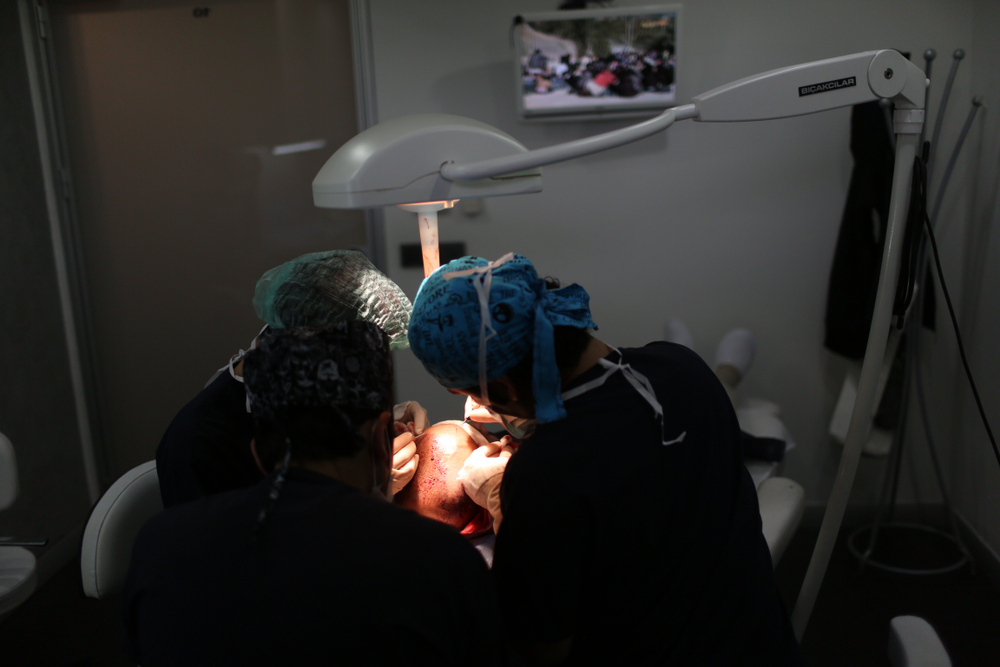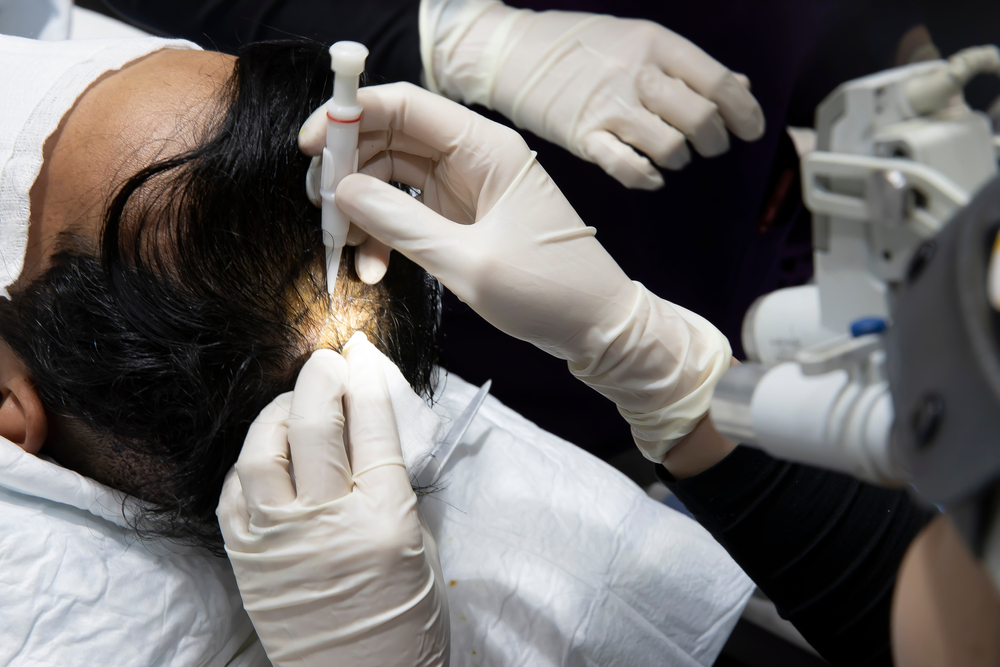While hair transplant surgery can be an effective solution for individuals experiencing hair loss, there are several potential negative aspects and risks associated with the procedure.
Consider these factors before deciding to undergo a hair transplant…
- Cost – Hair transplant surgery can be expensive, and it may not be covered by insurance, as it is often considered a cosmetic procedure. The cost can vary widely depending on the clinic, the technique used, and the extent of hair loss.
- Scarring – Hair transplant surgery typically involves the removal of hair follicles from one part of your body (the donor area) and transplanting them to the balding or thinning areas (the recipient area). This process can leave small scars in both the donor and recipient areas, which may be visible if you keep your hair short.
- Risk of infection – Like any surgical procedure, hair transplant surgery carries a risk of infection. Proper post-operative care and hygiene are crucial to minimize this risk.
- Temporary shock loss – After the transplant, it is common to experience “shock loss,” which means that the transplanted hair may temporarily fall out before regrowing. This can be distressing for some patients, as it may take several months for the new hair to start growing back.
- Uneven results – The success of a hair transplant largely depends on the skill and experience of the surgeon. If the surgeon is not experienced or skilled enough, you may have uneven or unnatural-looking results.
- Limited donor area – The availability of donor hair is limited to the amount of hair you have in the donor area (usually the back and sides of the head). If you have extensive hair loss or insufficient donor hair, a hair transplant may not provide sufficient coverage.
- Ongoing hair loss – A hair transplant does not stop or prevent further hair loss in areas that were not treated. To maintain a consistent appearance, additional surgeries or alternative treatments may be necessary over time.
- Potential for complications – While hair transplant surgery is generally safe, there can be complications such as bleeding, scarring, or anesthesia-related issues. Choosing a qualified and experienced surgeon to minimize these risks is essential.
- Time and patience – Hair transplant surgery is not a quick fix. It can take several months to see the full results, and multiple sessions may be required to achieve the desired outcome.
- Psychological impact – You may experience anxiety or stress related to the procedure, especially if your expectations are not met or if complications arise.
Before considering a hair transplant, consult with a qualified and experienced surgeon who can assess your specific situation and discuss the potential risks and benefits. Exploring alternative hair loss treatments and lifestyle changes may be worthwhile to address hair loss concerns without surgery.

